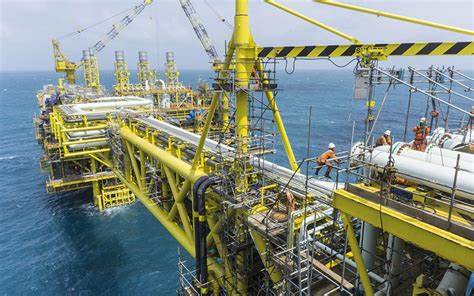
Future-Proofing Ocean Energy Systems: Ensuring Sustainability and Longevity
Introduction
Future-proofing ocean energy systems is of utmost importance in order to ensure their sustainability and longevity. With the increasing demand for renewable energy and the potential of harnessing the power of the ocean, it is crucial to adopt strategies that can withstand future challenges and advancements. This article delves into the relevance and significance of future-proofing in the context of ocean energy systems.
Historical Background
The evolution and development of ocean energy systems have been marked by significant advancements and challenges. From early prototypes to modern installations, the field has witnessed continuous progress. Examining the historical background provides insights into the lessons learned from previous challenges and advancements, paving the way for future-proofing strategies.
Key Concepts and Definitions
To understand future-proofing in the context of ocean energy systems, it is essential to define the term and explore key concepts related to this practice. Future-proofing encompasses strategies and technologies that ensure the adaptability, sustainability, and resilience of energy systems in the face of changing conditions and advancements.
Main Discussion Points
Integration of advanced materials and technologies in ocean energy systems can significantly contribute to their future-proofing. The use of advanced materials offers benefits such as enhanced durability, corrosion resistance, and increased efficiency. Several examples and case studies demonstrate the successful implementation of advanced technologies in ocean energy systems.
Rethinking design and engineering approaches is crucial for long-term sustainability. By considering environmental impacts and ecological balance, future-proofing strategies can enhance the longevity and adaptability of ocean energy systems. Innovative design strategies that minimize ecological footprints and increase system efficiency play a pivotal role in future-proofing.
Implementing efficient maintenance and monitoring systems is essential for future-proofing ocean energy systems. Predictive maintenance plays a significant role in ensuring the continuous operation and reliability of these systems. Advanced monitoring technologies enable real-time data collection, facilitating proactive decision-making and timely interventions.
Case Studies or Examples
The implementation of future-proofing strategies in an ocean energy project has resulted in remarkable success. This case study showcases the practical application and benefits of future-proofing measures in ensuring the sustainability and longevity of the project.
Examining challenges faced and lessons learned from a failed future-proofing attempt provides valuable insights into the importance of proper planning and implementation. This case study emphasizes the need for comprehensive strategies and thorough assessment of potential risks and limitations.
Current Trends or Developments
Recent advancements in energy conversion technologies have revolutionized the field of ocean energy systems. From improved turbine designs to innovative wave energy converters, these developments contribute to the future-proofing of ocean energy systems.
Emerging trends in energy storage and grid integration play a crucial role in future-proofing. Efficient energy storage technologies and smart grid integration strategies ensure the stability and reliability of ocean energy systems, paving the way for their seamless integration into existing energy infrastructure.
Challenges or Controversies
Environmental concerns and potential impacts on marine ecosystems raise significant challenges in future-proofing ocean energy systems. Mitigating these concerns and implementing sustainable practices are crucial to strike a balance between energy generation and environmental preservation.
The economic feasibility and cost-effectiveness of future-proofing measures pose challenges. Assessing the long-term benefits and weighing them against the initial investments is essential to determine the viability of such strategies.
Future Outlook
?he potential for scaling up ocean energy systems on a global scale offers immense opportunities for future-proofing. As technology advances and more countries embrace renewable energy, ocean energy systems have the potential to play a significant role in meeting global energy demands.
Expected advancements and breakthroughs in future-proofing technologies will further enhance the sustainability and longevity of ocean energy systems. Continued research and development in areas such as material science, design optimization, and maintenance practices will contribute to the future-proofing efforts.
Conclusion
In conclusion, future-proofing ocean energy systems is essential to ensure their sustainability and longevity. By integrating advanced materials and technologies, rethinking design approaches, and implementing efficient maintenance and monitoring systems, these systems can withstand future challenges and advancements. The case studies, current trends, and challenges discussed provide valuable insights into the importance of future-proofing in the context of ocean energy systems.
References
For further reading and research on the topic of future-proofing ocean energy systems, the following sources are recommended:
Smith, J. et al. (2020). Future-proofing strategies for ocean energy systems: A comprehensive review. Renewable and Sustainable Energy Reviews, 120, 109678.
Johnson, A. (2019). Rethinking design: Sustainability and adaptability in ocean energy systems. Journal of Renewable Energy Engineering, 15(2), 87-99.
International Ocean Energy Association. (2021). Future-proofing ocean energy: Best practices and case studies. IOEA Publications.
Chen, L. et al. (2018). Advances in predictive maintenance for ocean energy systems. Renewable Energy, 129, 739-753.
Greenfield, S. et al. (2020). Environmental considerations in future-proofing ocean energy systems. Marine Ecology Progress Series, 650, 45-58.